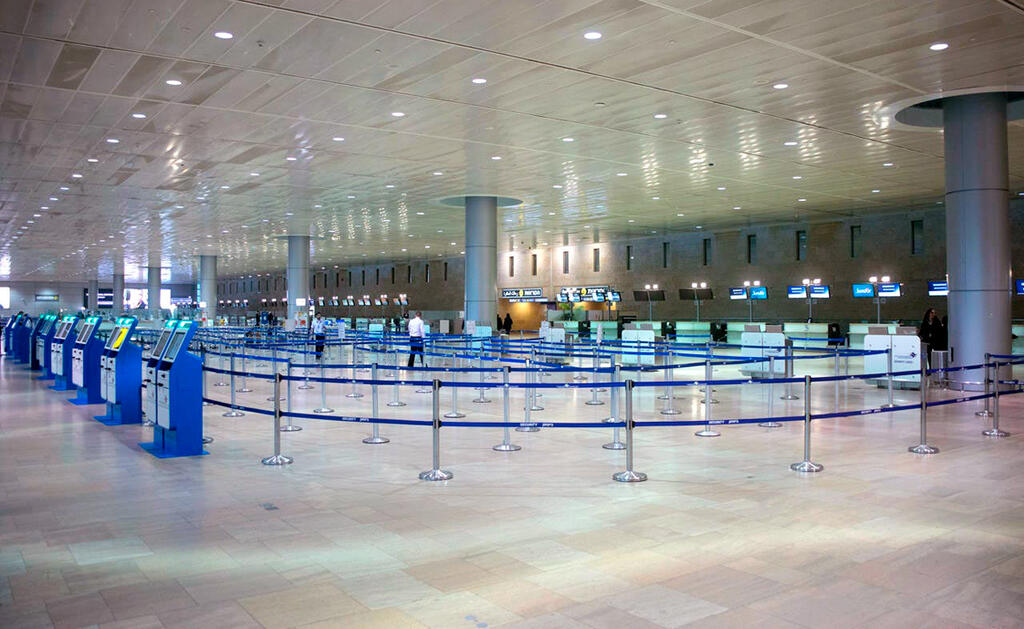
“Israel is becoming a prison for tech workers”: Flight shortage risks global disconnect
Israel’s tech sector scrambles to keep sales and operations running as soaring fares and limited flights due to the ongoing war disrupt business abroad.
Israel’s high-tech sector faces growing concerns over transportation blockages following recent fighting, compounded by the suspension of foreign airlines. Two prominent Israeli venture capital executives, Michael Eisenberg of VC fund Aleph and Liad Agmon of Insight Partners, recently highlighted these challenges on social media. Agmon revealed that Insight asked one of the entrepreneurs they invested in to relocate to the United States due to the severe lack of available flights. Eisenberg similarly mentioned a company forced to move sales teams to the U.S. as flights out of Israel dwindled.
Israel’s high-tech industry depends heavily on foreign markets, especially the U.S., where many tech companies conduct the bulk of their sales. Currently, El Al is the only airline offering direct flights from Israel to the U.S., but these are fully booked, and ticket prices have skyrocketed into the thousands. Previously, United, American Airlines, and Delta offered flights, but all suspended service following the outbreak of the war. Though these carriers returned briefly, they have once again suspended flights, and with heightened tension in the region, regular service remains uncertain.
Israeli tech companies cannot function without international mobility, especially when their business relies on maintaining a global presence. Startups, especially those in the midst of funding rounds, need face-to-face meetings with investors, who now hesitate to visit Israel due to insurance concerns and the lack of flight options. The challenges extend to sales operations; many deals require in-person interaction to foster trust, particularly in times of crisis. Relying solely on virtual meetings is often insufficient for companies accustomed to cultivating relationships in person.
The high-tech industry is drawing on lessons from the pandemic, when flights were similarly restricted. However, back then, it was a global issue. Now, it’s a crisis unique to Israel. Conferences continue as usual globally, and investors want to meet developers in their locations. The inability to attend conferences and maintain personal connections with clients and investors threatens to limit Israeli tech’s reach.
A senior entrepreneur at an Israeli tech company told Calcalist about the severe difficulties, explaining, “We used to fly all the time, but today every change costs thousands of dollars. A significant part of our time is now spent managing flights. An entrepreneur can’t succeed by staying in Israel. At the end of the day, our business is in the U.S., as are our senior employees. Without regular flights, Israel will become a ‘prison’ for tech workers.” Many companies have shifted toward balancing their workforce, hiring more developers and salespeople based in the U.S. and Europe to address these disruptions.
Idan Tendler, a Senior Vice President at cybersecurity giant Palo Alto Networks, added, “Israel is like a transportation ghetto now. It made sense at the onset of the war, but we’re becoming more isolated from Silicon Valley, the heart of high-tech. We are a multinational company with a development center here and thousands of employees in Israel. Our center plays a crucial role in our company, but we need continuous contact with headquarters in California—not just for executives but for senior employees who are key to business planning.” Without direct flights to the West Coast, maintaining Israel’s significance as a tech hub will be challenging, he noted.
Tendler emphasized that although Palo Alto Networks is not relocating employees to the U.S., it expects the Israeli government to facilitate the industry’s needs by ensuring a reliable transportation infrastructure. “Young companies have to send salespeople out, and we constantly fly to conferences, but we rely on the connection with our headquarters. Transportation is critical,” he said, noting that El Al’s limited schedule and high costs are discouraging managers from flying in.
Eyal Levy, Senior Vice President of R&D at BigID, a data privacy company, described similar obstacles. “We’ve faced flight disruptions, and many employees with families worry about being stranded abroad. Flights are harder to find, so we’ve allowed flexibility and encouraged combining meetings across different locations.” Levy explained that while the company’s development centers are primarily in Tel Aviv, it also maintains offices in New York to support global clients. BigID has adopted creative solutions, including relocating some employees temporarily to ensure continuity of operations.














